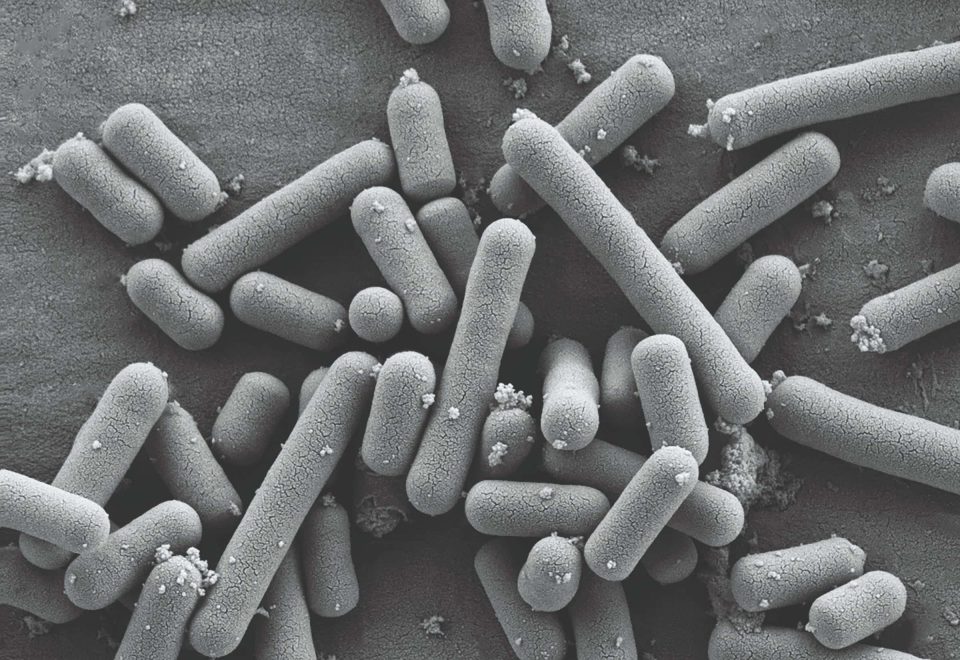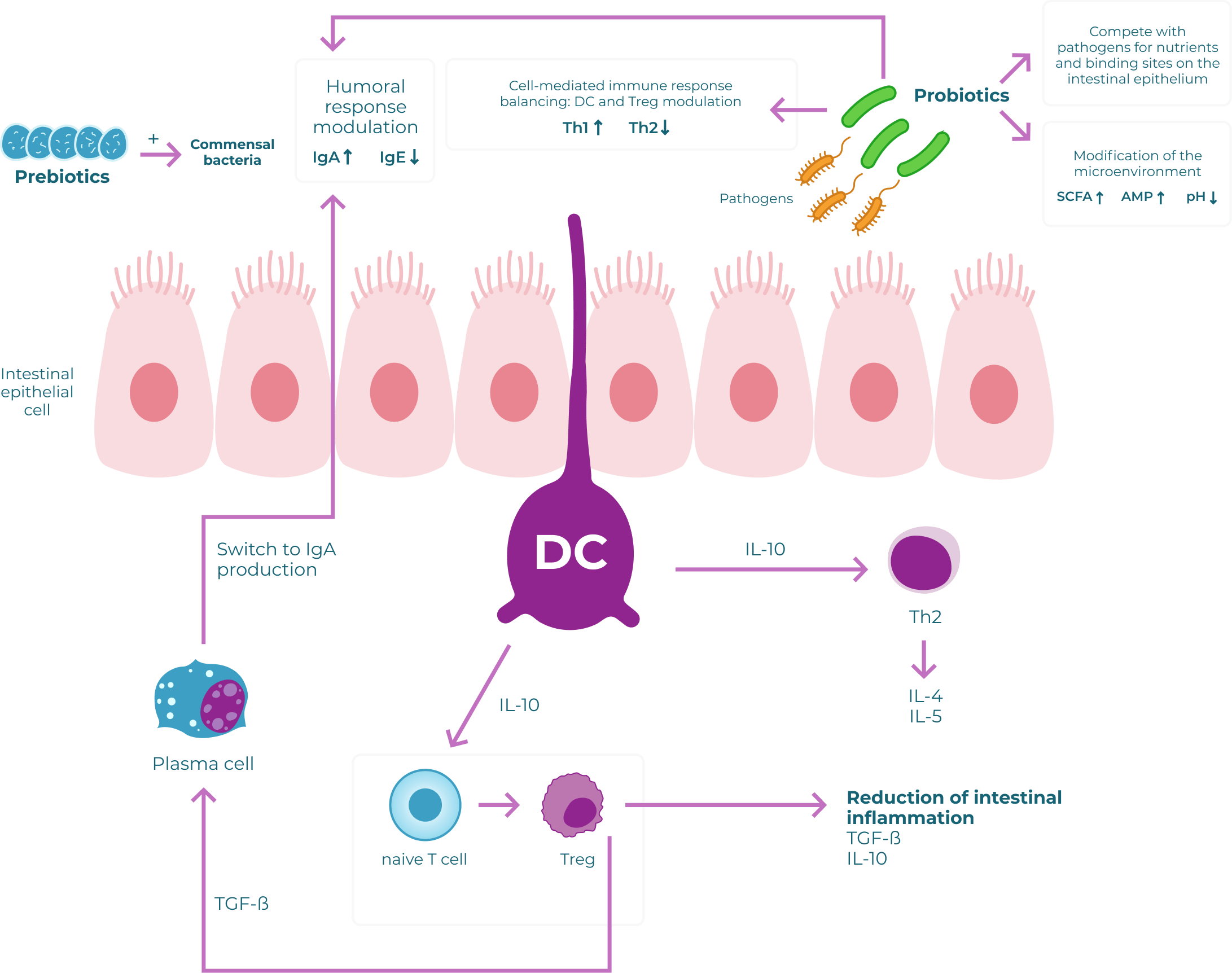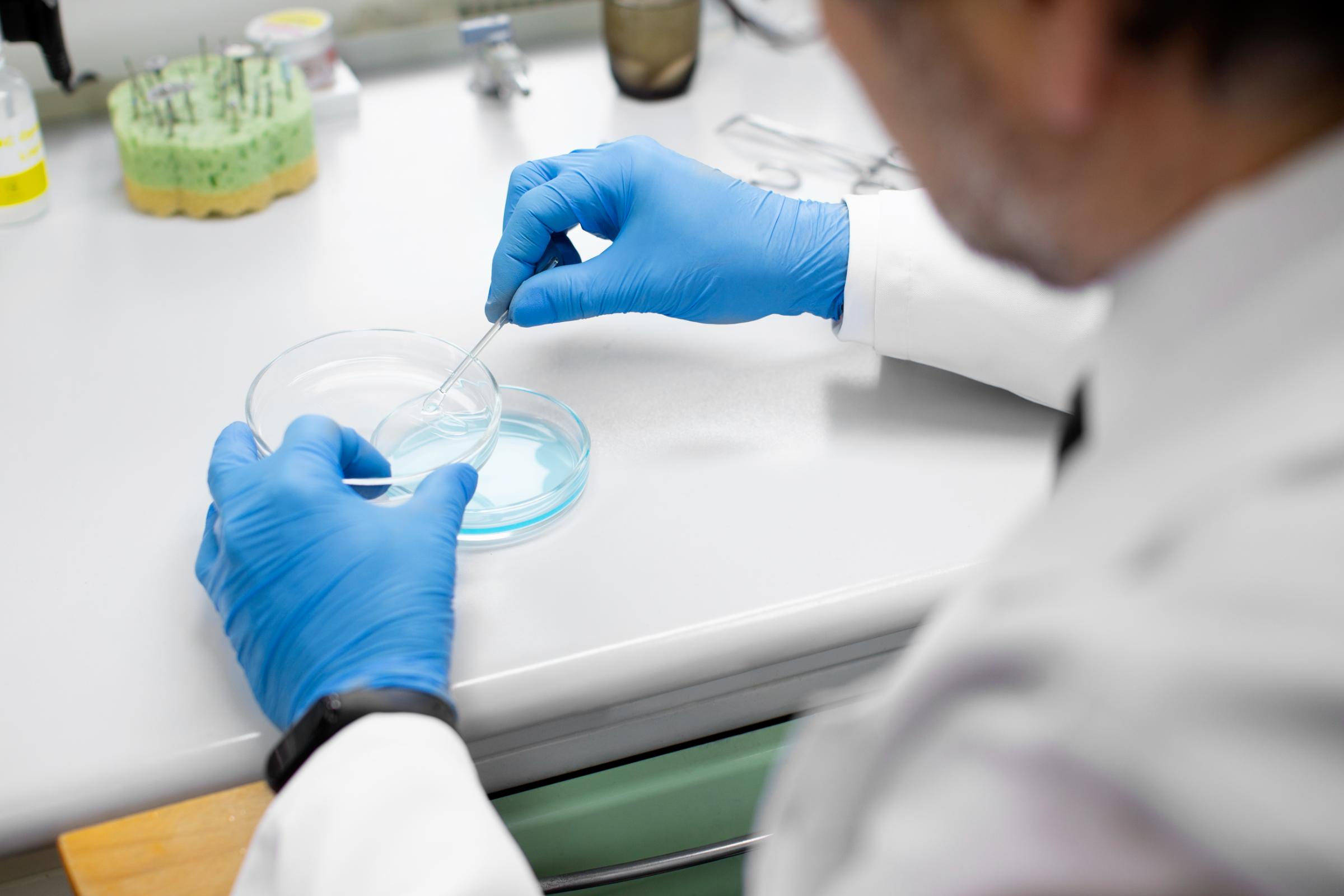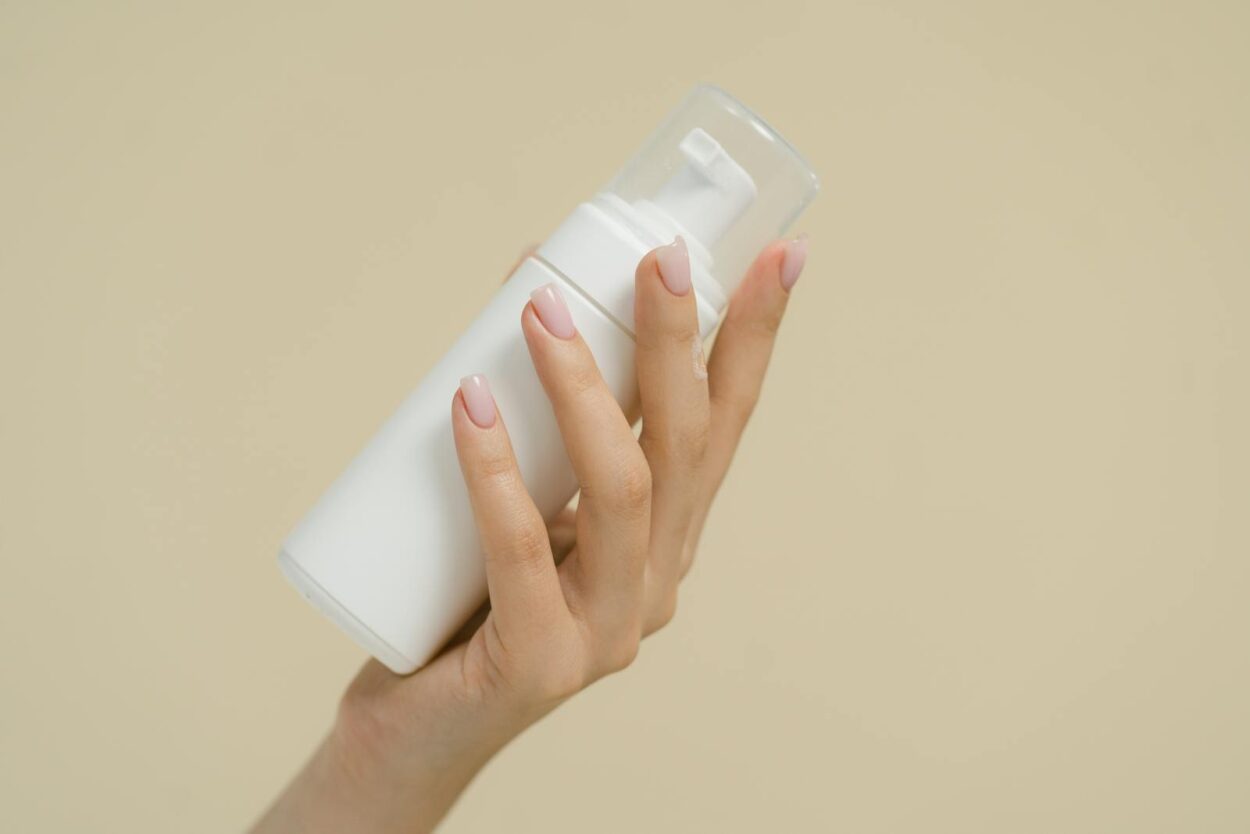What is Lactobacillus sakei proBio65®?
A Unique Probiotic
Isolated from traditional kimchi (Korean fermented vegetables), L.sakei proBio65 is a natural lactic acid bacteria strain.
A natural lactic acid bacteria strain
- Survives in simulated gastric juice
- Survives in simulated bile after exposure to gastric juice
- Lack of antibiotic resistance*
* per EFSA criteria
Lactobacillus sakei proBio65® is a registered trademark in the U.S., registered to Probionic Inc. Corporation of Korea. Kaneka is a registered trademark in the U.S., registered to Kaneka Corporation of Japan.

Available in Live and Heat Treated (Inactivated) Formats
Formats
Capsules
Cream
Sticks
Contact us to learn more
Atopic Dermatitis Kids and Adults
Skin Health

Clinical evidence of Lactobacillus sakei proBio65®
Scientific Findings and Clinical Validation

Clinically-Tested Oral Administration of live cells
Clinical Study
Woo et al. Ann Allergy Asthma Immunol 2010
Clinical Study Participation
The clinical study assessed 107 individuals. Of these, 19 were excluded due to not meeting inclusion criteria (16) or refusal to participate (3), leaving 88 participants who were randomized to receive either a probiotic supplement (45) or a placebo (43). By the 12-week follow-up, 41 participants remained in the probiotic group, with dropouts due to refusal to ingest the powder (1), non-attendance (1), and poor compliance (2). In the placebo group, 34 participants completed the study, with attrition due to refusal to ingest the powder (2), non-attendance (2), poor compliance (4), and ingestion of another probiotic agent (1).
The Results
Reduction of total skin score and of extent & intensity sub-score
Effect is statistically significant, both compared to baseline and to placebo
Mean improvement over placebo (9.6, 95%CI 3.8-15.3) doubles the average improvement in meta-analysis (5.7, 95%CI 4.2-7.3)
Topical Administration of heat-treated cells
Clinical Study
Park et al. Ann Dermatol 2014
Clinical Study Design
Double-blind, placebo controlled clinical trial, split-body design
Subjects
N = 28 recruited
- Individuals with bilateral atopic dermatitis for at least 6 months
- Age range 3-37 yr
- Baseline SCORAD: 13.5 – 50.3
- Patients treated with cyclosporine or systemic steroids in the
- previous 4 weeks were excluded
Intervention
Topical emollient containing 10% L. sakei proBio65® lysate (at 5×109 cfu/gr before lysis), used b.i.d. for 4 weeks, vs emollient without probiotic extract
The Results
Faster reduction in trans-epidermal water loss across time (P = 0.007)
Faster reduction in scoring of pruritus by means of a Visual Analog Scale (p = 0.006)
- Efficacy has been replicated in randomized, placebo-controlled trials.
- Oral application and topical emollients (cream or gel).
- Heat-killed cells are efficacious both orally and topically.
- Supporting evidence from animal models, displaying effect on the same immune biomarkers as in humans.
- Patent-protected strain.
- Devoid of transmissible antibiotic resistance genes.
- The species L. sakei has been evaluated by the European Food Safety Authority (EFSA) Panel on Biological Hazards (BIOHAZ) and found to be suited for the Quality Presumption of Safety (QPS) status.
- The QPS concept was developed to provide a harmonized generic preevaluation to support safety risk assessments of microorganisms intentionally introduced into the food chain. The identity, body of knowledge, safety concerns and antimicrobial resistance of valid taxonomic units were assessed.
- The QPS status is given if the taxonomic group does not raise safety concerns or, if safety concerns exist, can be defined and excluded.
- This species has been present in the food supply as an article used for food in a form in which the food has not been chemically altered.
Disclaimer
Kaneka is not responsible for the structure function claims used in advertising of consumer packaged goods that contain L.sakei proBio65. This communication is for informational purposes only, and its content is not to be construed as advice regarding advertising claims. Before advertising consumer packaged goods that contain L.sakei proBio65, please consult a federal regulatory attorney experienced in the FTC and FDA regulations governing the advertising of dietary supplements.
Beauty from Within
A Natural moisturizing agent for sensitive skin
This product is registered in the International Cosmetic Ingredient Dictionary (ICID) as Natural moisturizing agent for sensitive skin.
Supporting the body
L. sakei proBio65® extract demonstrated in scientific studies of healthly individuals the ability to strongly support the body's efforts to inhibit the growth of pathogens known to trigger atopic dermatitis*
L. sakei proBio65® extract has been shown in scientific studies of healthy individuals to strongly support the antimicrobial effects of organic bodily functions on various pathogens including S. aureus and other common pathogenic bacteria (Park et al, 2008). *
| Pathogenic microorganisms | Clear Zone (mm) |
|---|---|
|
Escherichia coli KCTC 2441 |
27 |
|
Salmonella typhimurium SG |
31 |
|
Salmonella gallinarium ST |
28 |
|
Staphylococcus aureus KCTC 1621 |
28 |
|
Enterobacter cloacae KCTC 2361 |
28 |
|
Staphylococcus epidermidis KCTC 1917 |
24 |
|
Klebsiella pneumonia KCTC 2208 |
41 |
|
Shigella flexneri KCTC 2008 |
26 |
|
Citrobacter freundii KCTC 2006 |
28 |
|
Bacillus megaterium KCTC 1096 |
27 |

Promoting Balanced Immune Response
L. sakei proBio65® demonstrated in scientific studies of healthy individuals the ability to support the bodies efforts to significantly reduce immune overreaction in skin immune cells (mast cells) when being sensitized. *
L. sakei proBio65® extract has been shown to reduce immune over-reaction (Kim et al, 2013) by:
- Supports the reduction of β-hexosaminidase in healthy individuals: Hallmark of allergic reactions when mast cells are exposed to allergens.*
- Supports the reduction of IL-4 & TNF-α in healthy individuals: cytokines that generate inflammatory symptoms.*
Enhancing Skin Wellness Through Anti-Inflammatory Benefits
L. sakei proBio65® supports the reduction of inflammation in healthy individuals and exhibits other skin benefits.*
L. sakei proBio65® extract has been shown to support the reduction of inflammation in healthy individuals.* (Lim et al. 2011) by:
- Supporting the promotion of Foxp3+ cells in healthy individuals (important antiinflammatory marker)
- Supporting the increase of anti-inflammatory IL-10 in healthy individuals.*
- Supporting the increase of the ratio of IL10:IL12, in healthy individuals, exerting high anti-inflammatory function.*
- Supporting the bodies efforts to inhibit pro-inflammatory molecules (IFN-γ & IL-17).
L. sakei proBio65® extract also demonstrated other skin benefits in healthy individuals, which includes antioxidative activity, reduce damaged from radicals, and reduce melanin activity (Bajpai et al. 2016).*
Let's connect
Would you like to get more insights about Lactobacillus sakei proBio65®?
Contact us to learn moreSkin Health for Pets
For our best friends too
Epidemiology in canines
- Approximately 10% of all dogs are affected by CAD (Canine Atopic Dermatitis) in the developed world.
- CAD is commonly hereditary amongst digestive dogs, although there is no definitive diagnostic test. CAD can also be accelerated or influenced by household factors such as dust mites, store mites, pollen and mold.
- CAD can lead to common yet routinely frustrating symptoms including: Scratching, Rubbing, Chewing and Licking.
- These symptoms can lead to more serious issues including bacterial and yeast infections, bleeding and detrimental quality of life.
- Advanced therapeutics including allergy shots are proven to be routine and expensive.

Clinical trial
Kim et al. 2015
Clinical Study Details:
- RCT using L.sakei proBio 65 (2 x 10^9 CFU/G) measured at 1 and 2 months.
- Canines w. CAD (Canine Atopic Dermatitis).
- N – 38 dogs
Evaluation:
- Improvement in CADESI Score (Canine AD Extent and Severity Index) based on human scoring to detect size and severity of lesions.
- Increase in PVAS (Pruritus) scores which examines frequency and intensity of scratching in hot spots.
- Improvement in “hot spots” including tail and foot of subjects.
Disclaimer
This communication is for informational purposes only, and its content is not to be construed as a promotion of the benefits of consumer-packaged goods or advice regarding advertising claims of such products. Kaneka is not responsible for the structure function claims used in advertising of consumer-packaged goods that contain Floradapt® Sakei. Before advertising consumer packaged goods that contain Floradapt® Sakei, please consult a federal regulatory attorney experienced in the FTC and FDA regulations governing the advertising of dietary supplements for dogs and pets.

